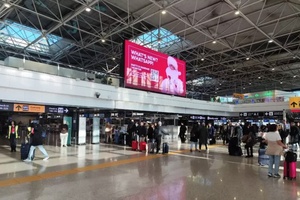"Austria will not carry out any controls on the Brenner borders at the moment and it is not set to resort to using the army in the immediate future," Austrian Chancellor Christian Kern said.
Sources at the Italian premier's office in Rome said they welcomed the Austrian government's reconsideration.
The sources stressed that collaboration between the two nations’ police forces is producing excellent results and is based on both sides' respect for European rules, without any need for troops or military vehicles.
Austrian armoured vehicles remained in their barracks on Wednesday after Vienna threatened to deploy four of them and 750 troops to the Brenner Pass to block any migrant influx from Italy.
Meanwhile, the European Asylum Support Office (EASO) said in its annual report on Wednesday that Italy received almost 123,000 asylum applications in 2016, a 47 per cent gain on 2015.
The 122,960 applications make up 9.5 per cent of the European Union total.
Germany topped the rankings again with 745,155 applications, a 58 per cent rise on the previous year and accounting for 58 per cent of all European asylum requests.
EASO also said that 2016 was a record year for migrant crossings on the central Mediterranean route, making up 18 per cent, or181,459 of the total migrants.
This route was the main access route to Europe and Italy was the "main point of entry", EASO concluded.
With ANSA




























